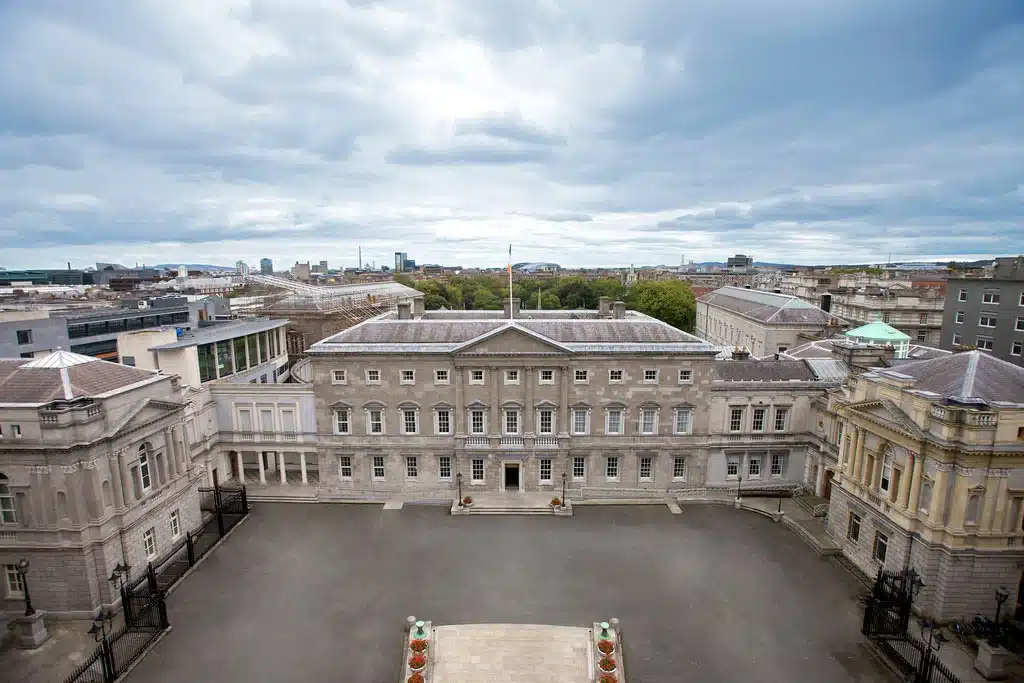40% Irish people unhappy over state of Democracy, EU Survey

Over 40% of Irish people are not happy state of democracy, and how it is operating in their nation, per a thorough EU-wide poll carried out by the European Commission. The report sheds light on various aspects of discontent, revealing concerns about access to accurate information, the prevalence of false and misleading information, and the overall engagement with democratic processes.
(Read our latest blog Ireland’s Social Welfare Changes 2024 Ready to take effect.)
What Staistics indicate about the State of Democracy?
One of the key findings indicates that 40% of Irish respondents believe they have been frequently exposed to disinformation and fake news over the past week. With an average exposure of 35%, Ireland now has the eighth-highest percentage in the EU. Additionally, 34% of Irish adults reported occasional exposure to misleading information during the same period, while only 18% claimed rare or no exposure.
The survey delves into citizens’ perceptions of democracy in Ireland, revealing that 42% of respondents express dissatisfaction, with 19% stating they are “not at all satisfied” with how democracy functions.

While 54% are satisfied, this figure ranks Ireland as the ninth-highest among the 27 EU member states.
One major concern is availability of accurate information; according to 67% of Irish respondents, they can obtain trustworthy information about crucial national topics from a variety of media sources. However, this satisfaction level places Ireland as the eighth-lowest among EU member states, below the average of 72%.
Expressing political opinions without fear of consequences also ranks low among Irish citizens, with 64% stating they feel they can do so. This places Ireland at the ninth-lowest rate in the EU, with the average standing at 68%.
Engagement with politicians sees 58% of Irish respondents agreeing they can debate issues with candidates and political parties, aligning with the EU average but ranking as the eighth-lowest rate within the bloc.
The dissatisfaction with democracy appears to be more pronounced among specific demographics, including women, individuals under 40, rural dwellers, and those with lower education levels.
Irish citizens identify false and misleading information as the most serious threat to democracy, with 39% expressing this concern. Significant concerns include voters’ growing mistrust and skepticism of democratic institutions (31%) and their ignorance of democratic procedures (26%).
Regarding who is best equipped to defend democracy, 65% of Irish respondents express confidence in their fellow citizens, while support for EU institutions, civil society organisations, and the court system is also prevalent. However, confidence in the media (41%) and political parties and politicians (38%) is lower, though still above the EU average.
69% of respondents in Ireland said that online social networks are the main source of misinformation and fake news, followed by television (28%), online newspapers (24%), and messaging apps (20%).
To combat disinformation, 52% of Irish respondents believe online platforms should prompt users to verify information before sharing it, while only 15% feel internet users are sufficiently equipped to identify the veracity of information independently.
The survey findings suggest a broader trend of dissatisfaction with state of Democracy in various EU member states. The European Commission acknowledges the challenges faced by democracy, including rising extremism, polarization, and the spread of disinformation. The European Democracy Action Plan (EDAP) is presented as a solution to empower citizens, strengthen media freedom, and counter disinformation across the EU. European Commission President Ursula von der Leyen has announced a reform package in 2022 aimed at deepening EDAP’s impact and addressing covert foreign influence and shady funding.
LATEST NEWS
DISCOVER MORE






